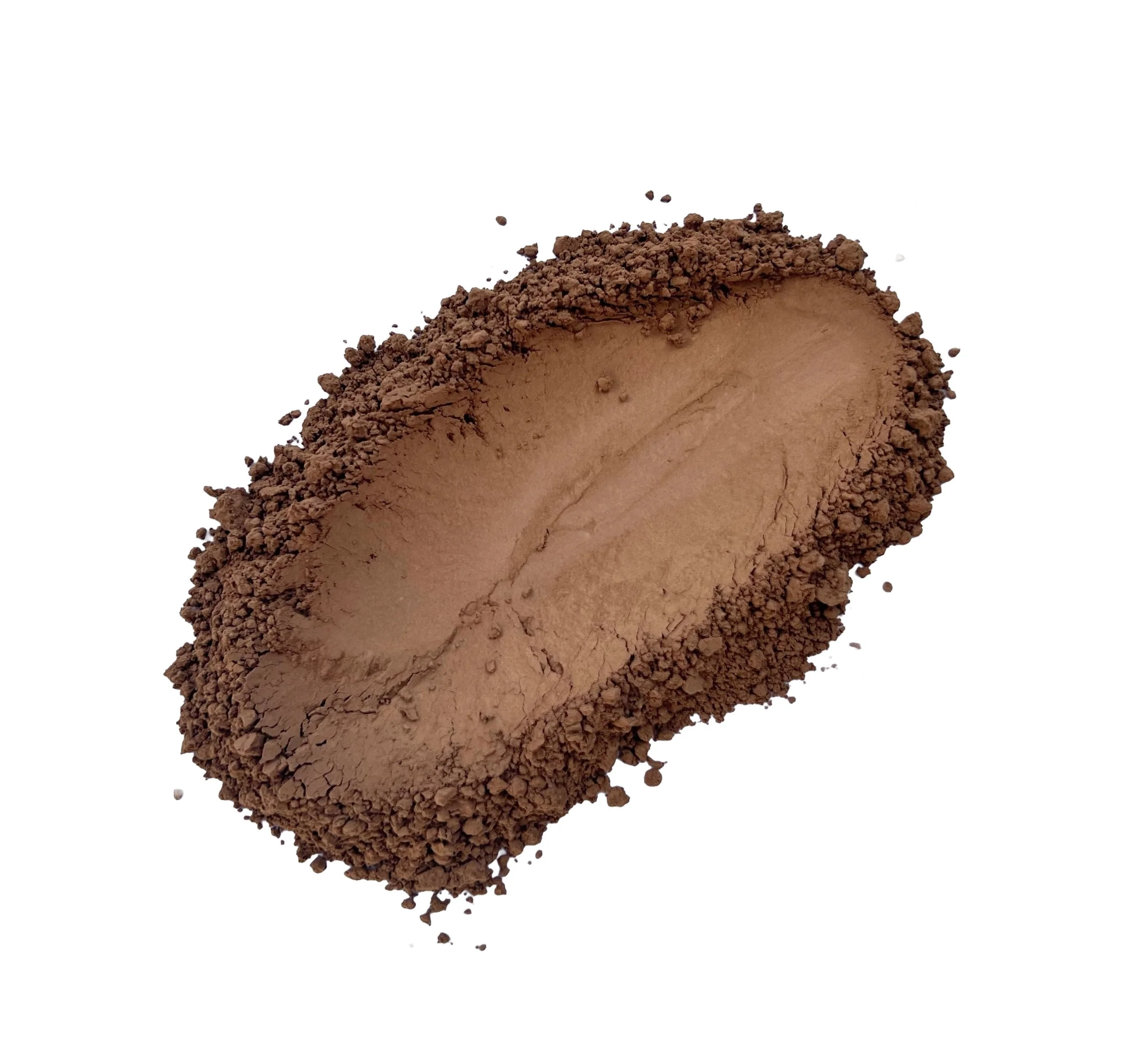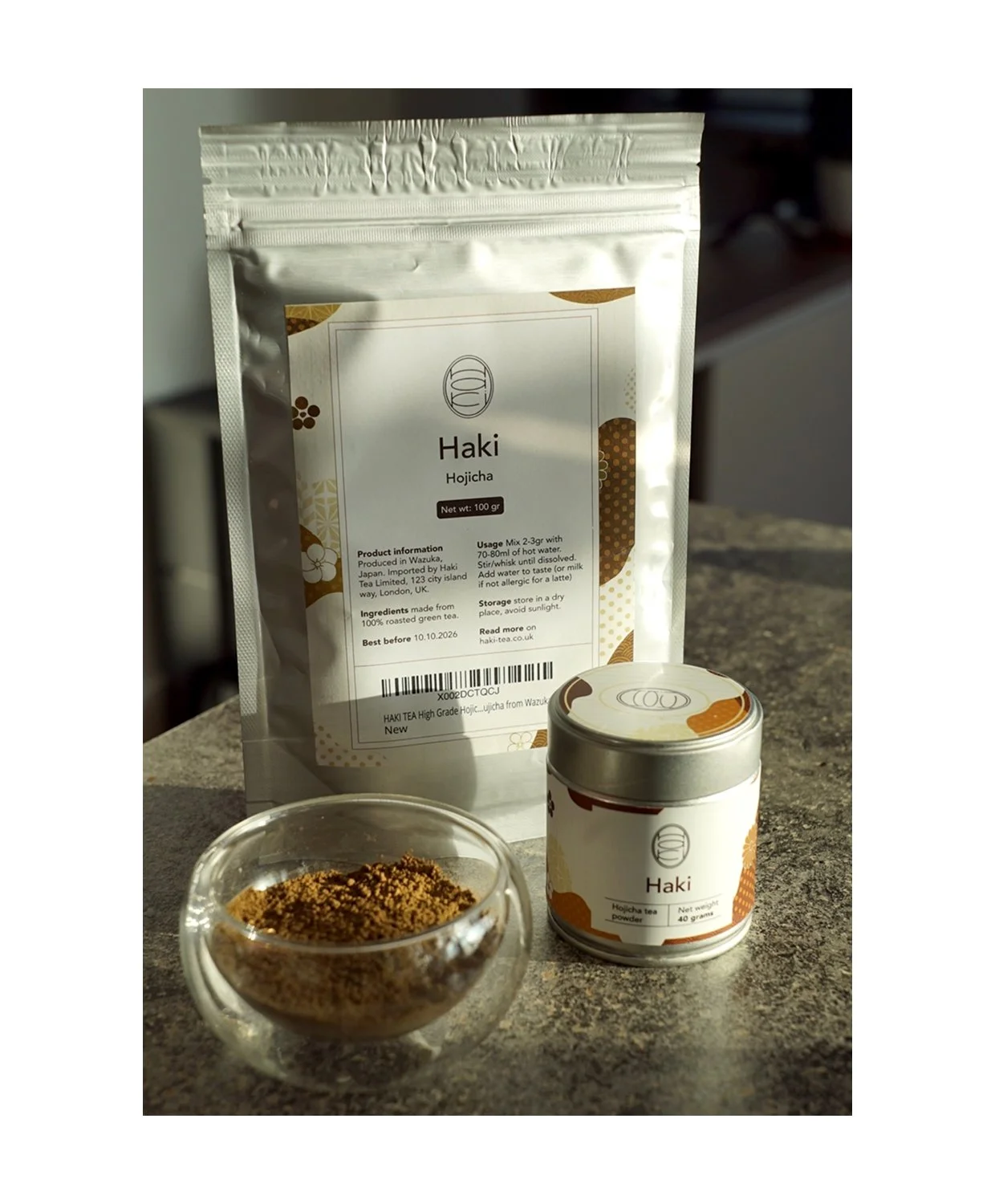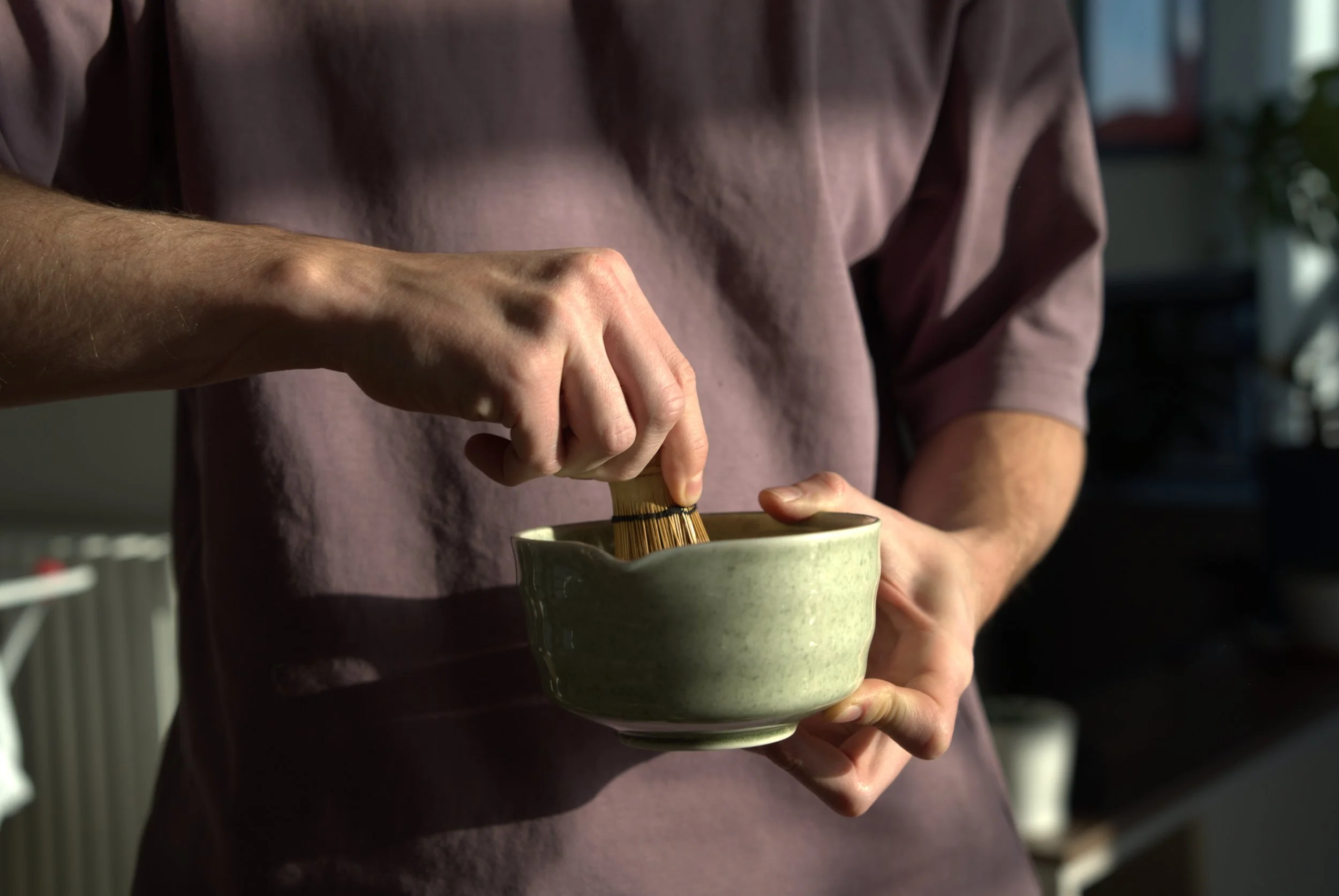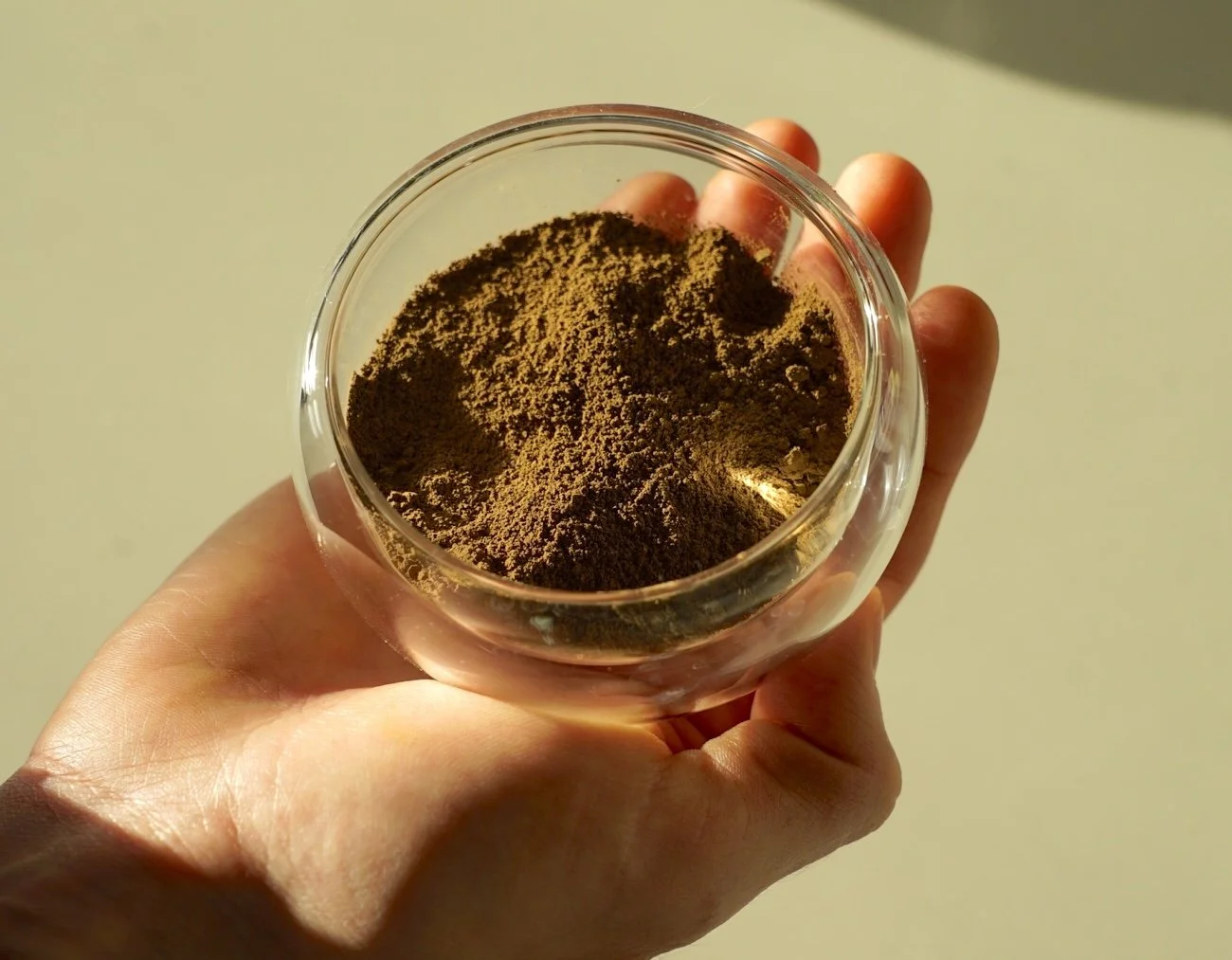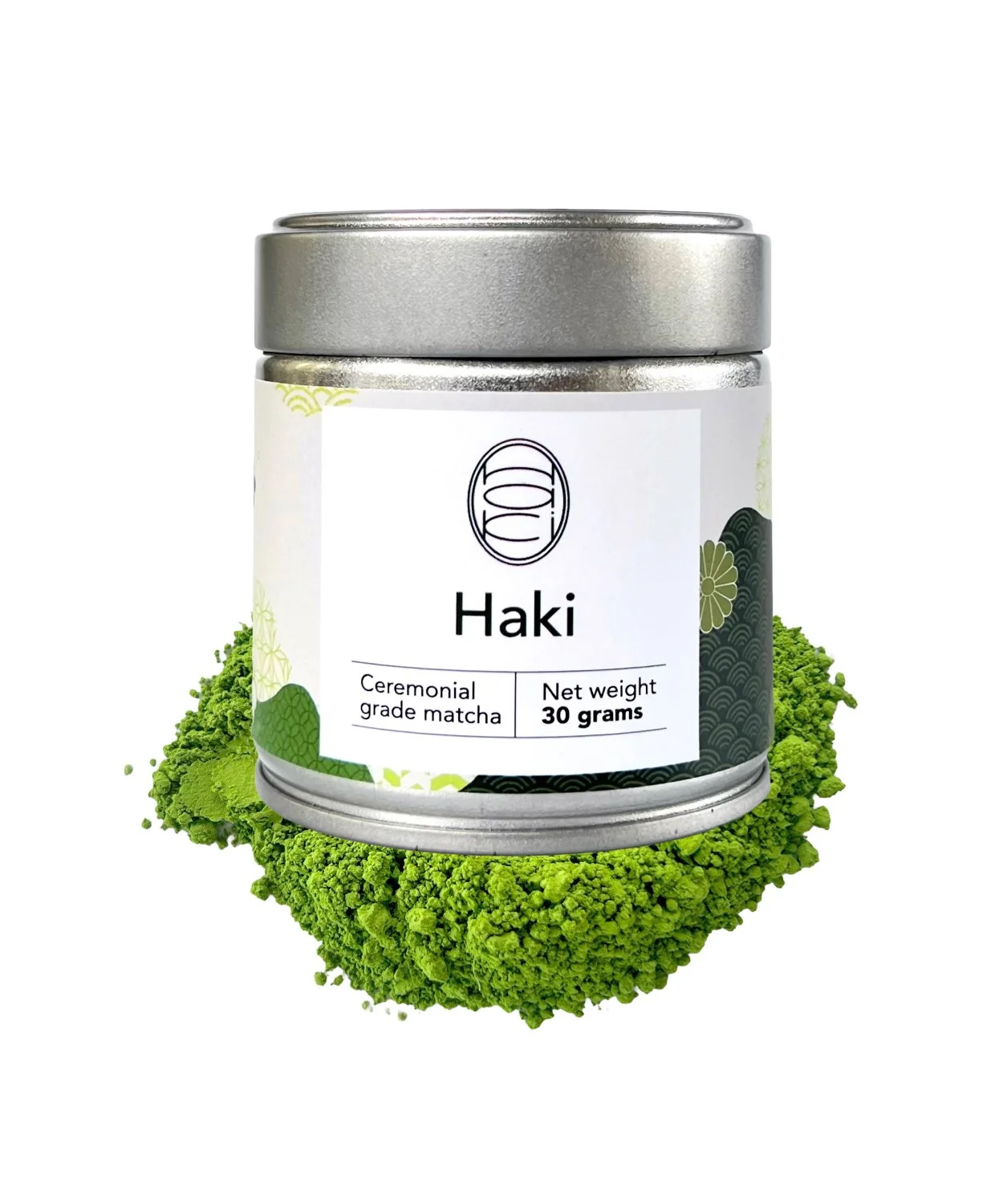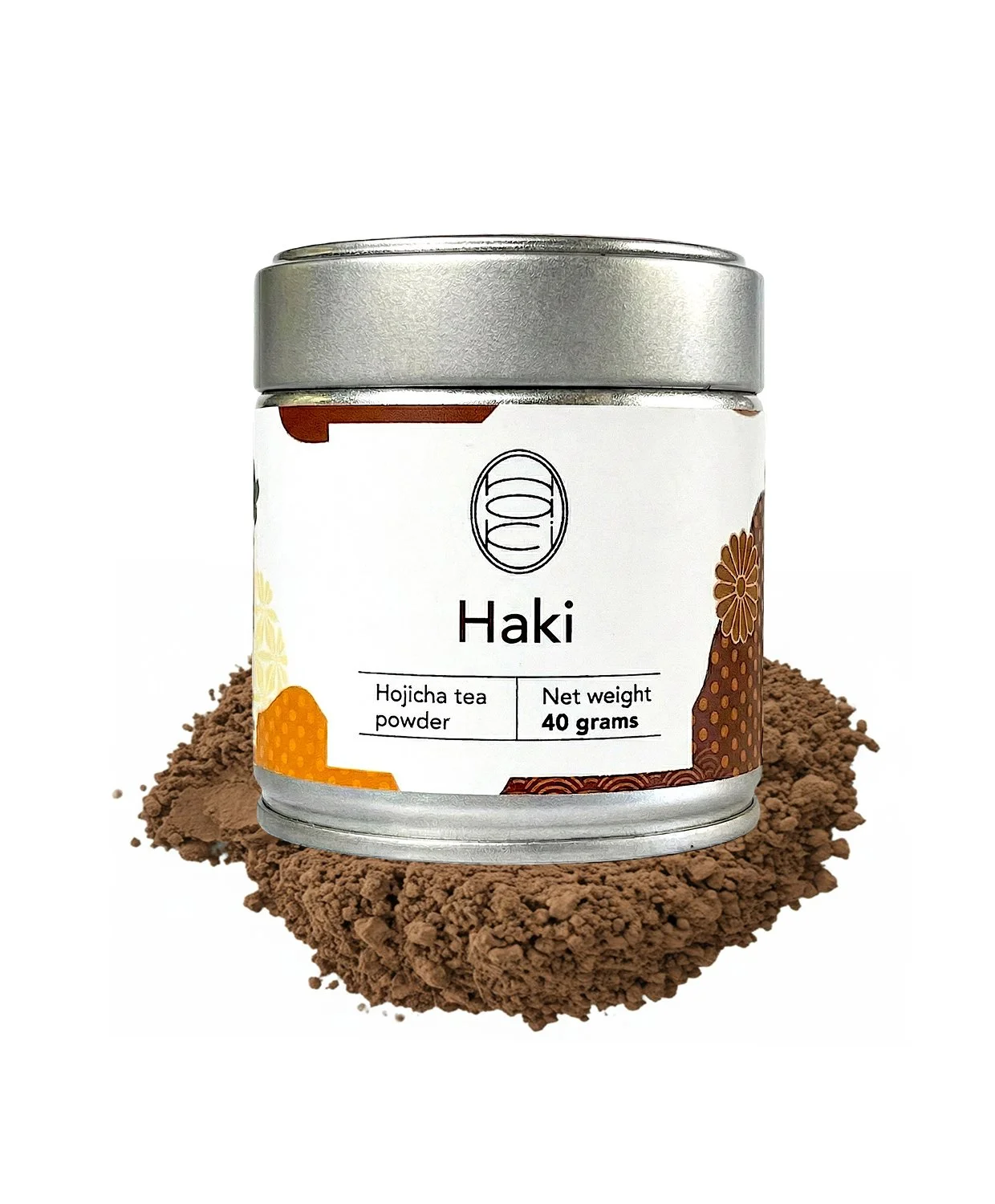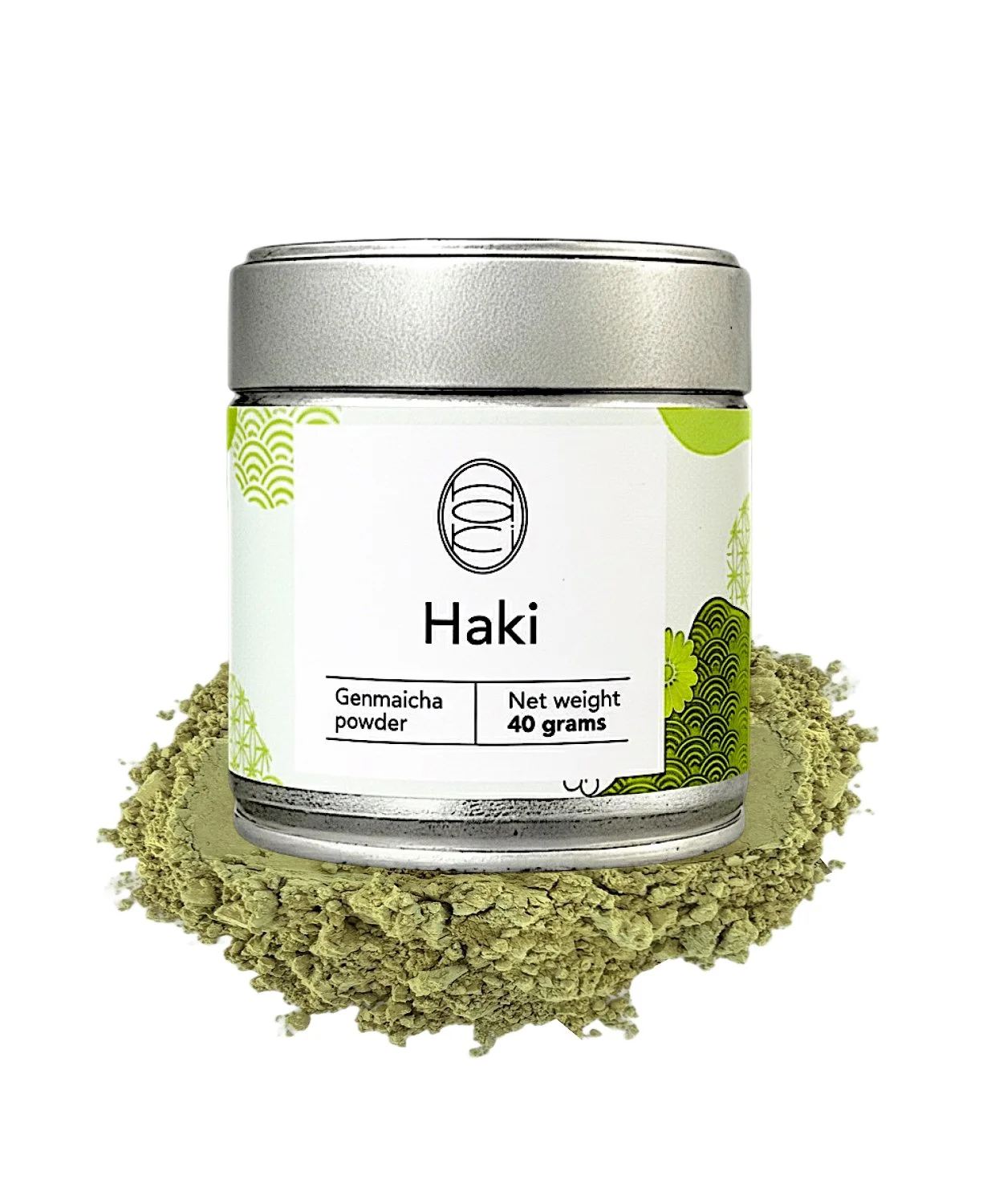How we recommend drinking the hojicha powder
3g to 5g of hojicha ⋅ 80/90°C ⋅ 200-300ml of hot boiling water
For the hojicha powder we recommend taking 3-5 grams of the tea and sieve it through the sieve into a bowl. Once done add 70 to ml of 80 degrees (max 90 degrees, but not boiling to preserve the taste) hot water on top and whisk with a bamboo whisk for 90 - 120 seconds until fully dissolved. Than add the dissolved hojicha into 200 ml milk for a latte. See our hojicha latte recipe for more.
The hojicha powder
| Taste | Roasted and nutty |
|---|---|
| Body | Medium to low |
| Texture | Rounded |
| Length | Medium |
| Harvest | September |
| Tea Cultivar | Mixed |
| Origin | Wazuka |
| Cultivation | Unshaded |
| Processing | Steamed, Rolled, Dried, Roasted, Ground |
What taste to expect from the hojicha powder?
Hojicha (焙じ茶), which translates to “roasted tea,” is a type of green tea, although it is not green in color. Unlike typical green teas, its colour comes from the roasting process, which gives it a distinct toasty aroma and a nutty, comforting flavour.
Hojicha is typically made from Sencha, Bancha, or Kukicha leaves, though it’s most commonly sourced from the larger, more fibrous leaves of sun-grown Bancha or Kukicha.
Expect a more nutty and roasted flavour with reduced bitterness or strong aftertaste (thanks to the roasting process).
Hojicha Powder FAQs
-
Both are healthy — it might just depend on what kind of “healthy” you’re after.
Matcha is powdered green tea made from shade-grown leaves. It’s rich in antioxidants (especially catechins like EGCG) and has a higher caffeine content, which can boost alertness, metabolism, and concentration. It's often chosen for its energy and detox benefits.
Hojicha, however, is roasted green tea. Its roasting cuts its caffeine content by a great deal, so it's much easier on the stomach and great for evening consumption or for people who are sensitive to caffeine.It does have L-theanine, though in slightly fewer concentrations than matcha, and still has antioxidants — just a different set, with a toastier, warmer flavor.
To summarise:
Matcha is better for: energy, focus, and a strong antioxidant punch.
Hojicha is better for: relaxation, low caffeine, and gut comfort.So, it's not like this is one healthier than the other-it's more about what your body needs at the time. So, think of Matcha as your morning power-up and Hojicha as your evening wind-down.
-
1.Lower Caffeine
Hojicha is made from roasted leaves and stems, which naturally contain less caffeine.
Matcha is made from young, shade-grown tencha leaves — high in caffeine.
Less caffeine = less chance of stomach acidity or jitters.
2. Reduced Tannins and Catechins
Hojicha has fewer tannins and catechins due to the roasting process.
Matcha is rich in both — great antioxidants, but can be harsh on empty stomachs.
Lower tannins = less astringency and irritation.
3. Roasting Changes Leaf Structure
Roasting breaks down fibrous plant compounds in hojicha, making it easier to digest and quicker to dissolve.
Matcha can be harder to whisk smooth and feels “heavier” in the body.
Roasted = smoother, gentler infusion.
4. Mellow, Nutty Flavour Profile
Hojicha has warm, toasted notes — similar to roasted barley or mild coffee.
Matcha has a strong umami, grassy, and sometimes bitter profile.
Less sharpness = easier drinking experience.
-
| Nutrient / Antioxidant | Matcha | Hojicha |
| ---------------------- | -------------------------------- | ------------------------------------ |
| Caffeine | High (19–44 mg/g) | Low (1–8 mg/g)
| EGCG | Very High (57–109 mg/g) | Very Low (\~1–5 mg/g)
| L-Theanine | High (14–44 mg/g) | Moderate (4–10 mg/g)
| ORAC Score | 1,300–1,800 | 150–300
| Best For | Energy, metabolism, antioxidants | Relaxation, low caffeine, gut health |
Verdict:
Hojicha is a roasted green tea that has been roasted at temperatures of up to 200 degrees celsius.
Matcha is not roasted but instead processed ( dried, de-steamed and de-veined if it is ceremonial grade ) and ground into powder.
Matcha is also shade grown and is typically made from first flush tencha ( be careful it is cheaper culinary matcha if it is not from tencha ) , while hojicha is made from Kukicha or Bancha which is typically tea that is harvested later in the year like Autumn or late summer.
-
Tasting Notes:
Roasted & Smoky – Because the leaves are roasted over high heat (usually in a porcelain pot), you get a toasty, almost campfire-like aroma.
Nutty & Earthy – Some people compare it to roasted nuts, barley tea, or even a light coffee.
Slightly Sweet & Smooth – Unlike grassy green teas, Hojicha is low in bitterness and very smooth, with natural caramel-like undertones.
Umami Lightness – It retains a gentle umami character, but it’s less vegetal than matcha or sencha.
-
Hojicha powder is a finely ground roasted Japanese green tea, loved for its warm, nutty, caramel-like flavour and naturally low caffeine. It’s super versatile — perfect for lattes, desserts, and baking — and gentle enough to enjoy any time of day, especially compared to matcha.
There are two main types of hojicha powder: light roast and dark roast. The difference comes down to the roasting temperature used by the producer.
Dark roast hojicha is roasted at higher temperatures, giving it a deeper, nuttier flavour, while light roast is roasted more gently at lower temperatures for a milder taste.
-
A Hōjicha latte is a cozy, toasty Japanese drink made from Hōjicha — a type of roasted green tea — mixed with milk(or a plant-based alternative).
It is made by mixing in 3-4 grams of hojicha powder with 70 ml of 80 degree boiling water ( and whisking it carefully ) and than combining that with milk.
When whisked with milk and a touch of sweetener (like honey, brown sugar, or maple syrup), it turns into a creamy, cozy drink that’s perfect for people who love tea lattes but want less caffeine and a mellower flavour than matcha.
Think of it as the “toasted cousin” of a matcha latte — earthy, rich, and subtly sweet, like a hug in a cup.
Check our hojicha latte recipe here.


